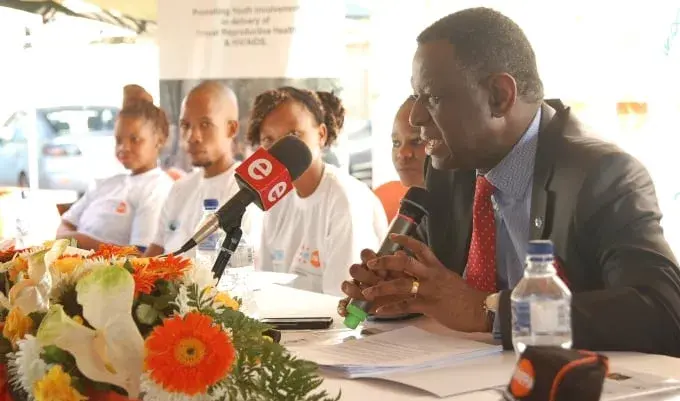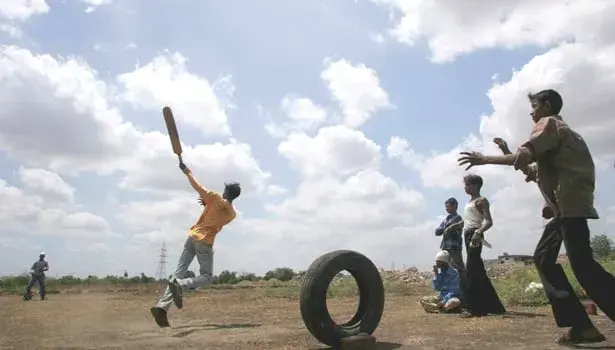Women and girls from some of the world’s least developed countries are sharing their experiences of significant life milestones — from their first day in school, to their first period and job. These stories were collected by UNFPA, the United Nations Population Fund.
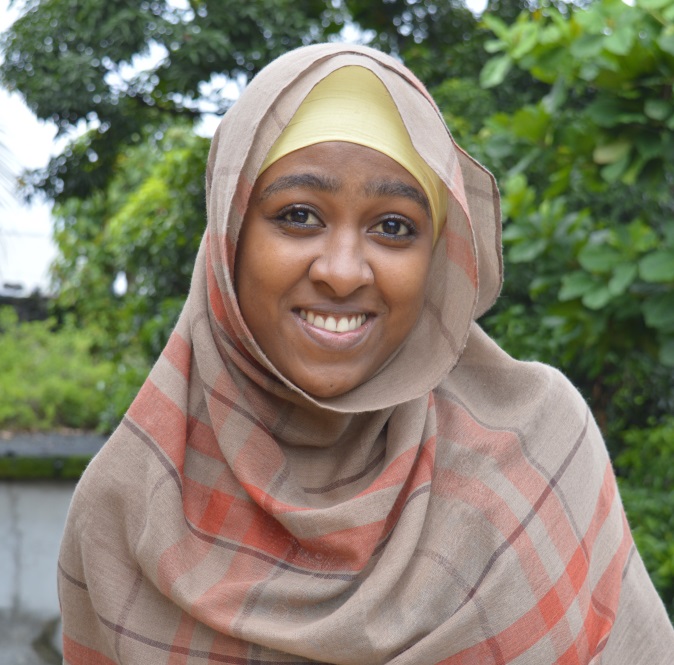
Takia Ali Mohamed Abdallah, 22
Grande Comore, Comoros
Takia Ali Mohamed Abdallah, from the island of Grande Comore in Comoros, couldn’t wait to start school.
“I remember the first day of school, but especially the day before,” Takia said. “I wanted to see how it feels to wear new clothes and put a backpack on to go to school.”
I was very happy and did not stop smiling in the street because I was going to school.
Comoros, an archipelago of islands in the Indian Ocean off East Africa, is one of the world’s least developed countries, plagued by overpopulation, poor harvests and severe unemployment. Education is officially compulsory for children from 6 to 16 years, but a large portion of the country’s children receive little or no schooling. While 83 per cent of girls enroll in primary school, compared with 88 per cent of boys, that number drops to 45 per cent in secondary school.
“I was very happy and did not stop smiling in the street because I was going to school,” Takia said, recalling her first day.
“Once at school, I was scared and shy to see all those children I did not know well dressed and some of them came from very rich families. They came with little toys and stuff that I did not have. Already some of them spoke French and I did not know a word,” she added.
Only half of the population is literate in French, which is still the official language of government administration in Comoros, decades after the islands gained independence.
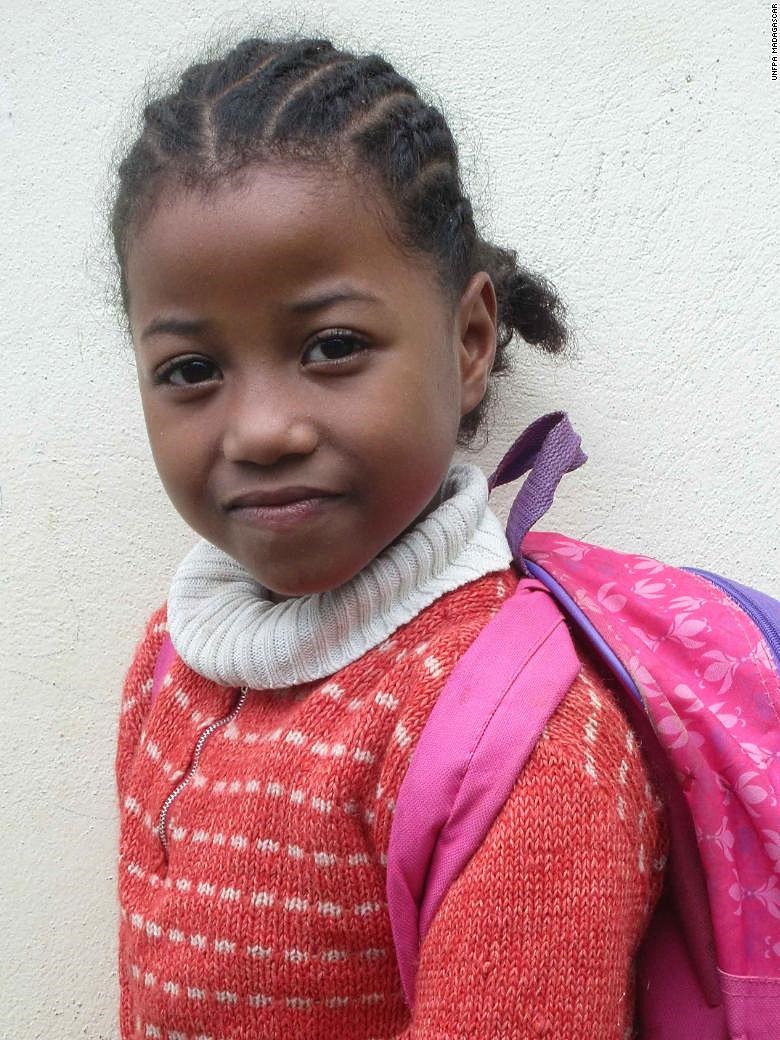
SOAVY, 6
Atsimo-Andrefana, Madagascar
Soavy, from Madagascar’s Atsimo-Andrefana region, just started school. The youngest of seven siblings, she’s been wanting to study for as long as she can remember.
"Since I was four years old, when I saw my brothers and sisters going to school, I accompanied them with my mother and I cried as soon as they entered the class because they left me alone. I told my mother that I want to study too and she replied that I am still small and cannot go to class. I am now like them; I have my schoolbag and I am going to write.”
I would like to be a doctor one day. I say it all the time to my mom and she just smiles.
In Madagascar, 78 per cent of girls and 77 per cent of boys enroll in primary school, according to UNFPA. But that number drops in secondary school, with only 32 per cent of girls and 31 per cent of boys enrolled.
“On my first day of school I had my bag on my back and my mother led me in class. In the hallway, the children screamed and I looked at them. Finally, I cried as well as others,” Soavy said. “Today, I do not cry anymore. I love to write and I like playing with my classmates. I would like to be a doctor one day. I say it all the time to my mom and she just smiles.”
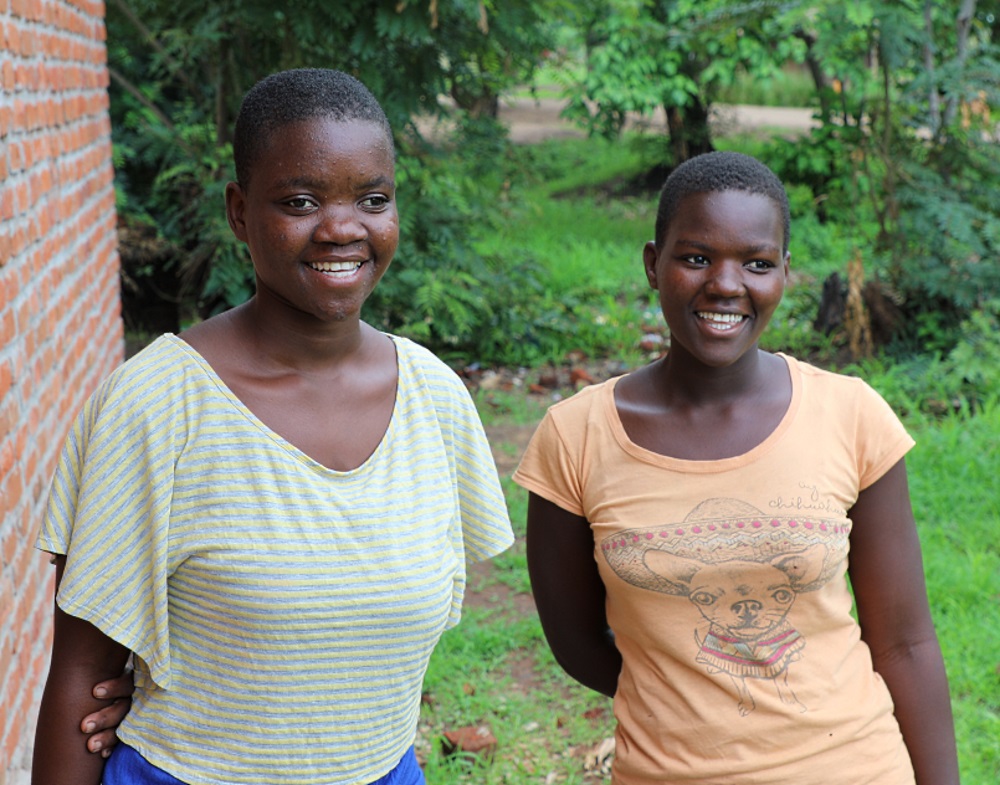
PROMISE KAMANGA, 18
Ndilowelo Village, Malawi
“I wore a red dress on that day,” Promise Kamanga, an 18-year-old from Kambwiri in Malawi said, recalling her first day of school.
“I was excited to go to school after having a long chat with my sister of what school was like, and I looked forward to this day.”
She remembers meeting her first friend at school, Gloria, and playing a game called 'champi' at break time.
School creates an opportunity for me to make good friendships and learn different talents.
Now in eighth grade at Katelera Primary School, Promise’s favourite subjects are English and mathematics. She wants to be a journalist when she completes school.
“School creates an opportunity for me to make good friendships and learn different talents,” Promise said.
She hopes to finish school and become a role model for other girls in her community.
Only 33 per cent of girls enroll in secondary school in Malawi. Many girls drop out of school because of pregnancy or to marry. This is often encouraged by parents, who can no longer afford to pay for school fees or supplies.
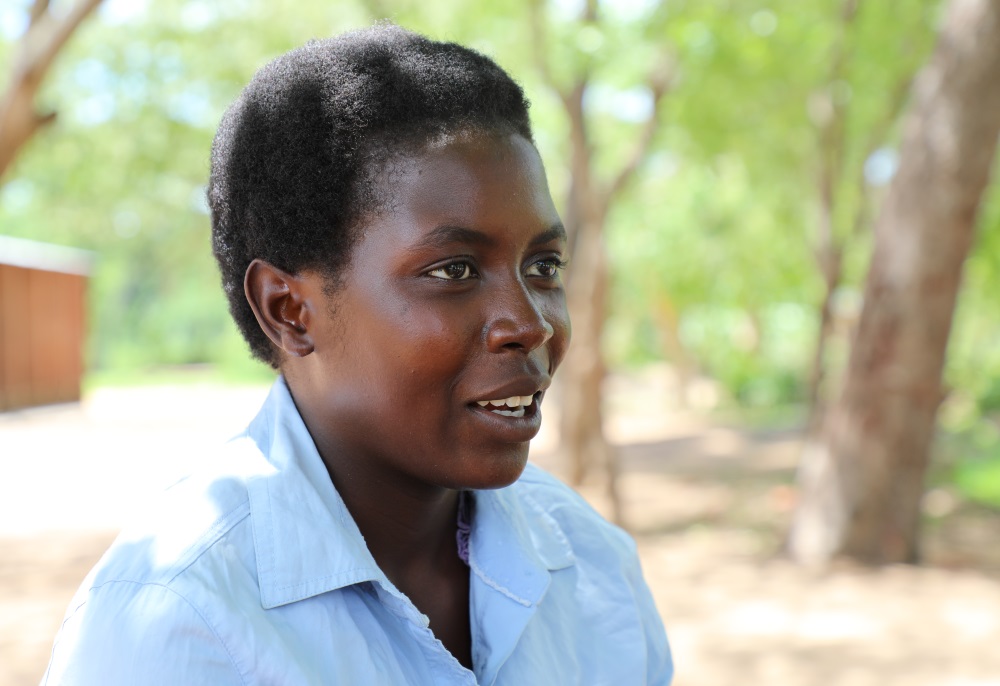
MARTHA KATOLA, 17
Mikute One, Malawi
On her first day of primary school, Martha Katola, now 17, remembers walking for five minutes from her village in Malawi’s Salima district to arrive - without a uniform or packed lunch.
“When I came to school, the head teacher asked me to put my hand over my head and touch the ear on the other side of the head to check if I was at the appropriate age to start school. I did not manage but he let me in,” she said.
I have learned to sew sanitary pads and also made new friends in the course of my education.
Martha, now in form three at Parachute Community Day Secondary School, is the second child in a family of five. She wants to be a soldier when she finishes school.
“I have learned to sew sanitary pads and also made new friends in the course of my education,” she said.
“These days, even in marriages, education is vital for the two of you to make good decisions about the family.”
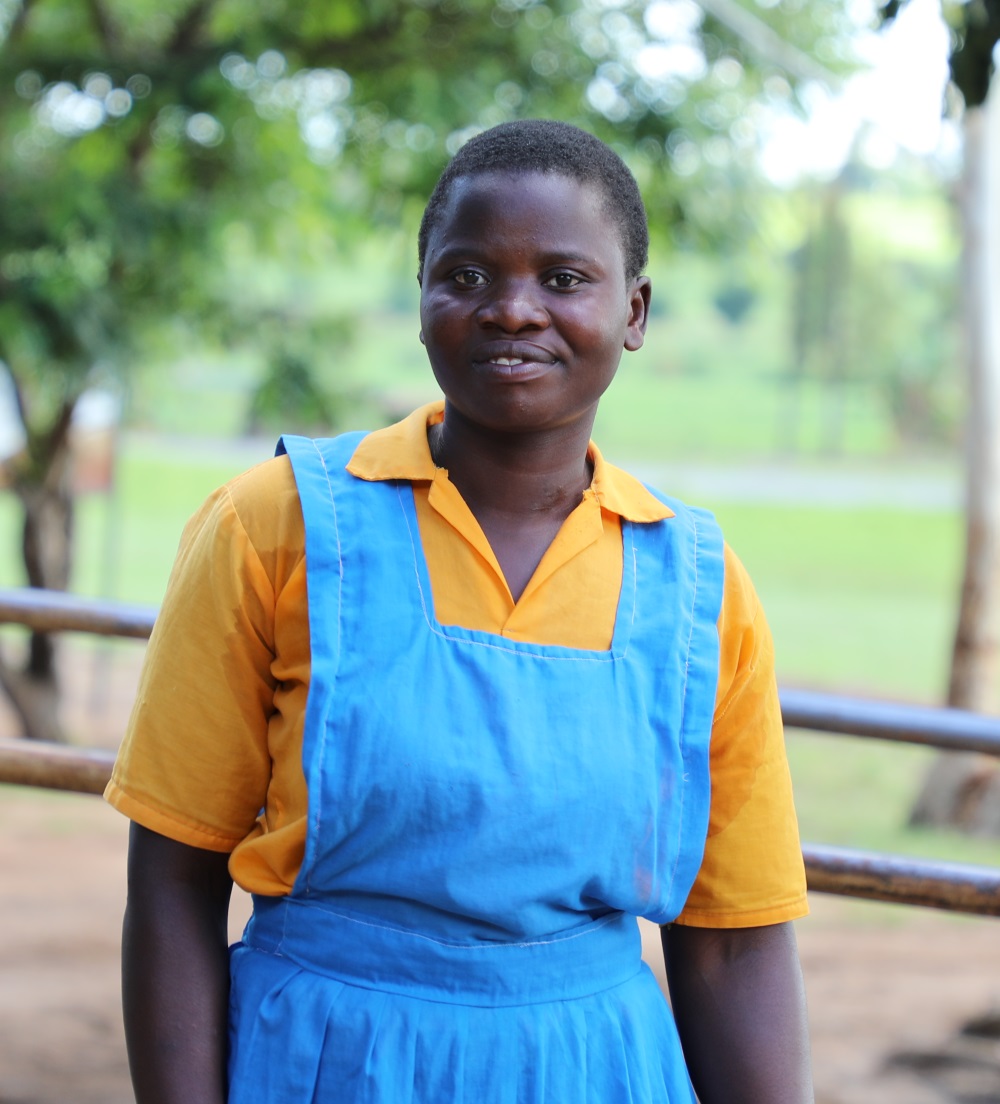
FOSTINA NKHOMA, 19
Malenga, Malawi
“I was 6 years old then and it took me about 15 minutes to walk to Makankhula primary school,” said19-year-old Fostina Nkhoma, from Malenga village in Malawi’s Dedza district, recalling her first day at school. She remembers arriving without a uniform or notebook, and not having eaten breakfast that morning.
“There were five of us from our village - Stella, Lonely, Mavuto, William and myself. Three are now married.”
Having missed several years when she became pregnant and dropped out of school, Fostina has since re-enrolled and is now in seventh grade.
I am sure that some day, I will be able to support myself and become an independent woman.
Very few girls make it to secondary school in Malawi, with only 33 per cent enrolling. Many girls, like Fostina, drop out of school because of pregnancy or for marriage. This is often encouraged by parents, who can no longer afford to pay for school fees or supplies.
“I find education quite a good thing because I am sure that some day, I will be able to support myself and become an independent woman,” Fostina said, adding that she’s determined to finish her education.
“You know, if you stay at home, you go to work in the garden every day and the heat makes you not look nice. For me, I take a bath every morning and walk to school and it makes [me] look younger than my friends of the same age [who] are married and work in the garden often; they look older than me,” she said.
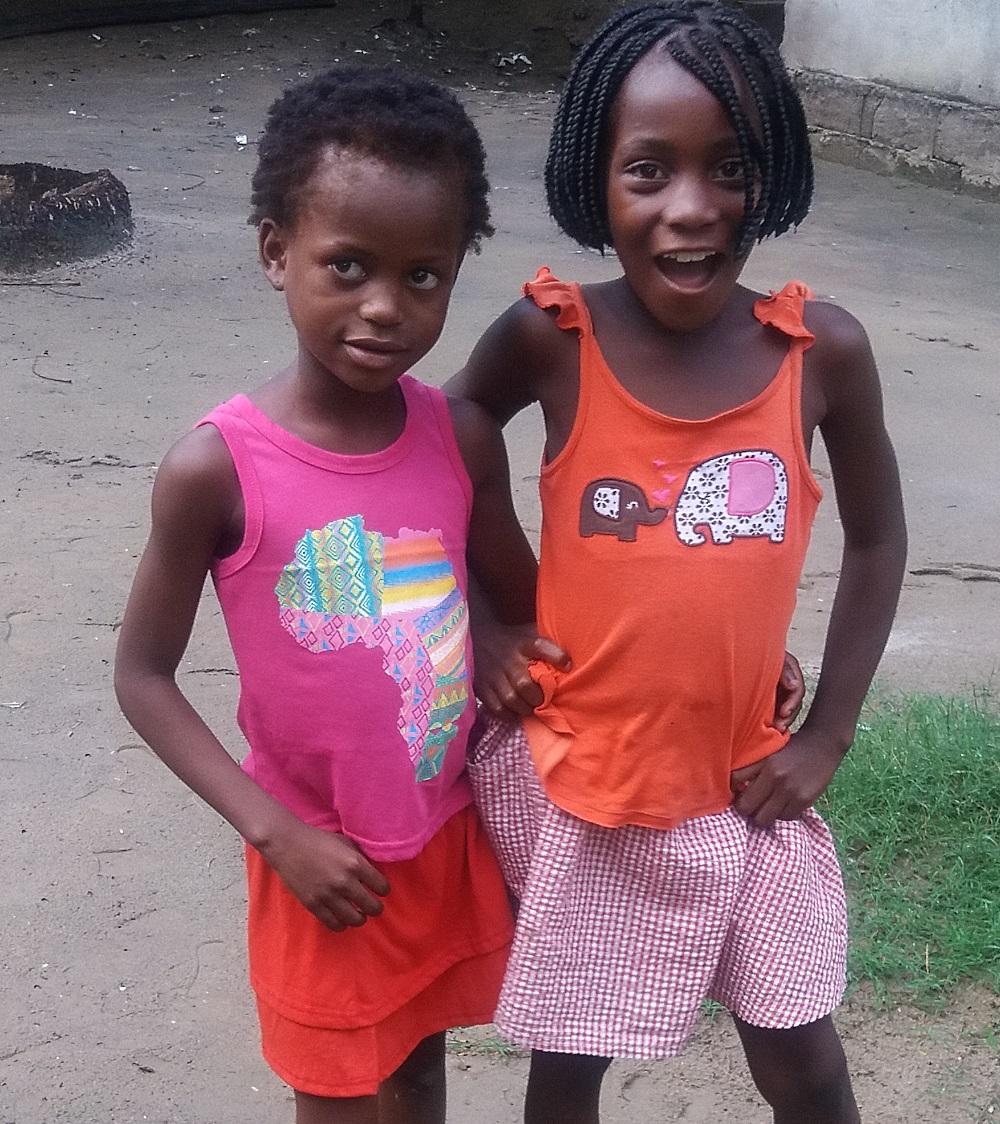
LILY, 7, AND BEATRICE, 7
Quelimane City, Mozambique
Lily and Beatrice have just finished their first year of school in Quelimane city, Mozambique.
They said that they learned the vowels in the alphabet and how to count to 20. They also said they sang and danced at school, and broke into a song about a doll.
The girls appealed to children not yet enrolled in school to attend, saying that they would like to teach them how to recite their vowels too.
While primary school enrollment is high for both boys and girls in Mozambique, many students drop out in secondary school, with only 18 per cent of girls and boys enrolling, according to UNFPA. Child marriage and early pregnancy are a contributing factor in forcing girls to quit school. In a 2015 survey by Mozambique’s health ministry, 46 per cent of girls aged 15 to 19 years old were either pregnant or already mothers.
Note: These stories were first published by CNN in As Equals, a year-long series dedicated to covering gender equality around the world.


